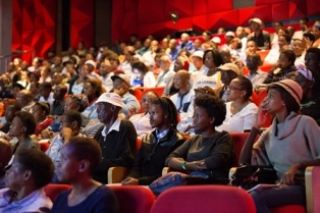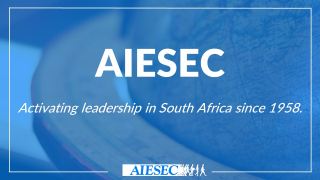Job Search e-learning empowers South Africa’s unemployed
Job Search e-learning empowers South Africa’s unemployed. We all know that unemployment is one of the greatest problems faced by South Africans, this has been the case for some time and will remain so until concrete, wide reaching and actionable interventions are developed and set in motion.
With an overall unemployment rate of around 27% and a youth unemployment rate hovering around 50% these interventions are needed urgently and in all spheres of the economy. From the creation of new job opportunities to empowering job seekers to be able to actively and successfully secure appropriate jobs. Angelo Pereira Managing Director of GOAL2WORK Jobseekers Toolkit said; “There are many programmes and interventions directed at attempting to reduce the unprecedented unemployment rate in South Africa.
However with the large scale of our unemployment crisis, reaching all of those affected personally becomes logistically almost impossible.” “We have found that whilst we were touching over a thousand individuals annually via our face to face workshops; which are designed to provide a clearly defined course of action aimed at viable positioning in the market in the shortest possible time, this was only a drop in the very large ocean of those needing to learn the essential skill of searching for and securing meaningful employment.”
When considering various options for expanding the reach of the GOAL2WORK programme it soon became apparent that e-learning was the most viable route to follow.
“Most of our target audience, even those in remote areas and with limited financial resources, had access to at least one device with which they could access the internet, mainly via their cell phones.” said Pereira.
With this in mind GOAL2WORK set about developing an e-learning version of their powerful lecture led workshops which teaches the abilities required to develop and implement a successful job search plan whilst reinforcing self-esteem and addressing many other obstacles a jobseeker may face. “It took us over a year to develop a programme which would provide all of the required content in an engaging, fun and interactive way.
The programme is fully animated with voice over, gamification, and interactive exercises.” On the technical front the programme was developed in modules which download as they play and are small enough not to require extensive data. Should users choose they can complete the programme using data on their phones or view small snippets “on the go” and then cover more of the programme when Wi-Fi is available or on home pc’s and tablets.
The GOAL2WORK e-learning programme is now completed and the company is exceptionally excited to make it available to as many unemployed South Africans as possible. Pereira added, ”we have already made the programme available for individuals to purchase via our website, however we are now actively looking for corporate, government and educational institution partnerships to spread the programme as widely as possible to those unemployed South Africans who so desperately need assistance.”
Contact: Angelo at 011 949-9000, This email address is being protected from spambots. You need JavaScript enabled to view it., www.goal2work.co.za for further information.
Collaborative initiative addresses business development and the unemployment crisis
Unemployment and lack of business skills are proving to be major drawbacks in advancing the economic well-being of the country noting that unemployment is at the highest in 13 years. To tackle these problems, a number of businesses in the private sector and NGOs joined together to stage a business readiness springboard and employment doorway, The Business Warm-Up, to confront head-on the economic challenges facing South Africa’s youth.
Supported by Infinity Learning, Harambee, The Business Place, National Small Business Chamber (NSBC) and the Zinto Marketing Group (Zinto), The Business Warm-Up took place at the Soweto Theatre in Jabulani on Thursday, 26 January 2017.
The City of Johannesburg’s Department of Economic Development endorsed the event and participated through its partnership with The Business Place which operates seven BizHubs in the city to support small businesses.
South Africa has one of the highest unemployment rates in the world. It is with these statistics that the partners in The Business Warm-Up have come together.
With 40% of Johannesburg’s population, Soweto must play its part in creating new jobs. This will only happen if we create a business-friendly environment, reduce red tape, open up new markets, and provide resources and financial support for start-ups and fast growing businesses.
The initiative was aimed at existing business owners, entrepreneurs and future start-ups, and job seekers wanting to enter the workplace, with the intention of stimulating local business, creating jobs as well as assisting job seekers to find employment.
A delegate and aspirant entrepreneur, Cortneigh Halim from Bassonia in the south of Johannesburg commented: “The Business Warm-Up was very informative. I learnt the key concepts of becoming a business owner; these included the different methods of acquiring assistance and advice, as well as the application process for obtaining funding for start-up capital. The information provided fulfilled my attendance at today’s event and the speakers were very knowledgeable. I hope to attend more of these events in the future.”
Zinto’s co-founder Michelle Combrinck said: “When we learned about The Business Warm-Up we were immediately drawn to the initiative as another platform to address the unemployment crisis and offer our insights into uplifting the youth.”
A recent enterprise that Combrinck conceptualised, Zenzele Educational Doorway (Zenzele), gives young hopefuls an opportunity to advance in society and pursue a rewarding career. The opening of Zenzele for wannabe client service professionals is indicative of the need for youngsters to become active job seekers and opportunity creators as youth unemployment remains a crisis.
It is the intention to roll-out this workshop to further communities and reach many more unemployed who require support and assistance in finding sustainable employment opportunities.
International experiences for South African youth
AIESEC in South Africa is currently preparing for their peak period of sending young individuals on international exchanges for community development or professional experiences. Through these cross-cultural experiences young people between 18 and 30 years can explore other cultures and develop their leadership skills to create a more harmonious future for all.
For the past two years, AIESEC in South Africa worked with Tata Consultancy Services to send 61 individuals for professional training to India, with the chance of getting employed full time upon their return to South Africa.
However, this is only one of many opportunities around the world to South African youth; we offer both 6 - 12 week projects to impact communities abroad as well as professional internship opportunities, starting from a duration of three months. With the holiday and graduation period for students coming up, this can be an opportunity to spend holidays in a meaningful way or jump-start their career abroad.
You can learn more about our opportunities on our website aiesec.org.za and browse our projects in our Opportunity Portal opportunities.aiesec.org. Sign up today to join our mission to end conflict worldwide and bring about global peace.
AIESEC is the world’s largest youth-led organization creating opportunities for young people to explore and develop their leadership potential. With offices in more than 125 countries and territories, AIESEC is a non-political, independent, not-for-profit organization run by students and recent graduates of institutions of higher education.
Are we disempowering our youth?
There are many reasons to disagree with this thinking.




